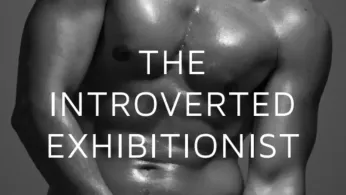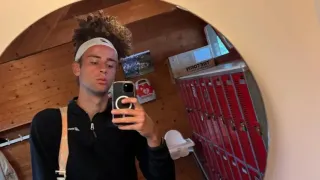
Nov 9
From Dysphoria to Display: Nic Billington’s 100 Nude Self-Portraits Reframe Queer Body Image
READ TIME: 15 MIN.
Nic Billington is the kind of person who turns heads and stops scrolls: a fitness influencer with a sculpted jawline, an Adonis build, and a digital presence that radiates confidence like a ring light. But behind the steel-cut abs and that steely Instagram glare, Billington’s story is one that resonates deeply—especially for queer people navigating the relentless, often contradictory, pressures of body image in and out of the spotlight .
For years, Billington lived with the harsh inner monologue of body dysmorphia—a relentless mental soundtrack that insists you’re never enough, no matter how many hours you spend in the gym or likes you rack up online. “People see the muscles and think I must be invincible,” Billington has shared, “but the reality is, I’ve spent most of my adult life picking myself apart in the mirror” .
What does it mean to reclaim your own gaze? For Billington, the answer came in the form of a radical new project: a coffee table book featuring 100 nude self-portraits, shot over the course of a year, in a deliberate act of self-confrontation and healing .
Each image, stark and unretouched, documents Billington’s shifting relationship with his body—some days defiant, some days vulnerable, all days honest. “It wasn’t about looking hot or aesthetic; it was about showing up for myself as I am, flaws and all,” he explains. The result is a visual diary that charts not just the contours of muscle and skin, but the emotional landscape of queer embodiment .
For LGBTQ+ people, body image isn’t just personal—it’s political. Our bodies have often been sites of scrutiny, desire, and danger, shaped by expectations both inside and outside our communities. The “ideal” gay body—ripped, hairless, endlessly youthful—can feel as oppressive as any heteronormative standard, especially in digital spaces that reward perfection over authenticity.
Billington’s project cracks that mirror wide open. By turning the camera on himself, rather than waiting for external validation, he asserts agency over his own narrative. “I wanted to see myself through my own eyes, not the world’s,” he says—a sentiment that will ring true for anyone who’s felt the sting of comparison culture .
The book doesn’t just invite us to admire; it dares us to empathize. In a world where queer bodies are so often commodified or caricatured, Billington’s unfiltered nudes stand as a call for gentleness, for holding space for every stretch mark, scar, and perceived imperfection.
There’s a particular bravery in stripping down—literally and figuratively—on social media, where so much is curated and controlled. Billington’s willingness to document the unglamorous days, the awkward angles, the moments of doubt, feels radical precisely because it disrupts the relentless positivity that dominates influencer culture .
“Some days, I hated what I saw. Some days, I was proud. But every day, I was real,” Billington notes—a reminder that healing isn’t a straight line, and that even icons need space to be human.
For many LGBTQ+ readers, especially those still making peace with their own reflections, Billington’s candor offers hope. It’s proof that vulnerability isn’t weakness; it’s a form of queer strength, a way to reclaim our bodies as sites of joy, not just struggle.
Billington’s book is more than a personal project—it’s a quiet act of activism. By placing queer nudes on coffee tables around the world, he’s asking us to reconsider what’s worthy of display, what stories we tell about our bodies, and who gets to be seen as beautiful.
This matters, especially now, as conversations about mental health and body image take center stage in queer spaces. Representation, after all, isn’t just about seeing ourselves in others—it’s about being seen on our own terms, without apology or disguise.
In the words of Billington himself: “My hope is that someone will flip through these pages and realize they aren’t alone. That it’s okay to be a work in progress. That there’s beauty in the becoming” .
In a media landscape saturated with curated perfection, Nic Billington’s 100 nude self-portraits do something rare: They make space for messiness, for honesty, for the ongoing journey of queer self-love. For anyone who’s ever felt at odds with their reflection—a club with endless membership—this project isn’t just art. It’s an invitation. To show up. To strip down. To see, and be seen.
And maybe, in the end, to leave the mirror a little kinder than we found it.






